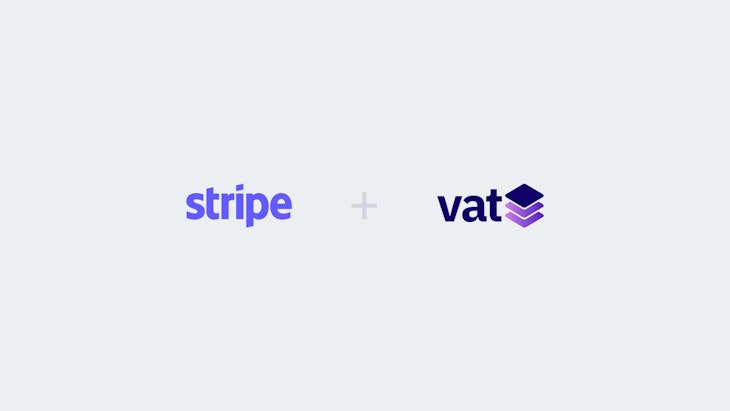What are Digital Products
You are planning to have customers in the EU but are not sure if you should be charging VAT for your digital products? Digital products may be subjected to VAT regardless of whether your business is located inside or outside the EU.
Matt HagemannPublished August 5, 2019
According to the European Commission, digital products are officially called electronically supplied services (or ESS).
Article 7 of Implementing Regulation (EU) 282/2011 defines them as “services which are delivered over the internet or an electronic network and the nature of which renders their supply essentially automated and involving minimal human intervention, and impossible to ensure in the absence of information technology.”
Moreover, Annex II of that VAT Directive gives an illustrative list of the types of supplies that can be considered ESS. While it’s non-exhaustive, the full list gives a good impression of what can be considered an electronically supplied service.
The list ranges from webhosting service (“website hosting and webpage hosting”), cloud storage (“online supply of on-demand disc space”), ebooks and epublications (“the digitized content of books and other electronic publications”) to online games (“downloading of games on to computers and mobile phones”).
In summary, if your product is virtual, cannot be felt, carried or packaged to be sent to your customers, they are categorized as digital products.
Types of Digital Products
Check to see if your products or services are listed.
- E-books, images, movies, and videos, whether buying a copy off of Amazon or using a service like Netflix. In tax language, these products are in a category usually called, “Audio, visual, or audio-visual products.”
- Cloud-based software and as-a-Service products, such as Software-as-a-Service (SaaS), Platform-as-a-Service (PaaS), and Infrastructure-as-a-Service (IaaS). If you’re running a subscription service (such as what we do at Vatstack), the service is most likely subject to VAT.
- Downloadable and streaming music, whether buying an MP3 or using a service like SoundCloud or Spotify. Of course, these products also fall in the audio category.
- Websites, site hosting services, and internet service providers.
If your product falls into one of the categories above, your only concern now is to charge the correct VAT rate. Each member state of the EU has its own VAT rate. You therefore have to obtain your customer’s country of residence first, before you can apply the VAT. The customer’s location is where the chargeable event takes place, not your business’ location.
If your customer is a business, she needs to be able to provide her unique VAT number to remove that VAT. That’s because businesses are generally not surcharged a VAT. You need to take special precautions when accepting VAT numbers from customers as their validity need to be confirmed.
Are Online Courses Subject to EU VAT?
The usual answer here is: it depends. That’s why you’ll want to be extra careful in how you want to structure and deliver your online courses. Whether you’re teaching marketing, yoga or cooking classes online, your students may have to pay consumption tax when they purchase your course.
The determinant factor to decide whether your online course is subjected to VAT is in how far your service is automated. These EU explanatory notes will help clarify: “Automated distance teaching dependent on the Internet or similar electronic network to function and the supply of which requires limited or no human intervention, including virtual classrooms, except where the Internet or similar electronic network is used as a tool simply for communication between the teacher and student”.
If you’re letting your students download materials and never intend to teach them one-on-one during a live webinar, your service renders itself as fully automated without human intervention. Automated distance teaching is subject to VAT. If, however, the downloaded materials are merely considered workbooks to support a webinar hosted by online tutors with live Q&A’s, your service may be exempt from VAT. To be absolutely certain, please consult your tax advisor.
EU VAT on Digital Products
In the physical world, goods entering the EU are taxed at the customs before they are released for pickup or delivery to the customer. In the digital world, there are no borders at which taxation could take place. Therefore, European lawmakers have decided that the businesses themselves are held accountable for applying and collecting the correct VAT rate on their behalf.
Article 58 of the VAT Directive places VAT requirements on suppliers of ESS (including non-EU suppliers) to customers. Every calendar quarter, businesses have to file EU VAT returns to remit the VAT that they have collected during the preceding quarter. Certain digital products are even eligible to a reduced VAT rate in some EU countries.
How You Stay Compliant
More and more businesses are selling digital products online, and the trend is only going to strengthen with the shift to a digital economy. You can generate price quotes during customer checkouts. Quotes utilize our powerful tax engine to charge at the correct EU VAT rate with every online payment. It determines the applicable VAT rate based on your customers’ location and your nexus.
You can provide the type of digital product you are selling and the API will automatically adjust VAT rates where necessary, for example if the jurisdiction has reduced rates for ebooks or audiobooks.
Learn how to implement compliant and automated checkout procedures by forwarding the link to our API reference to your engineering team.


